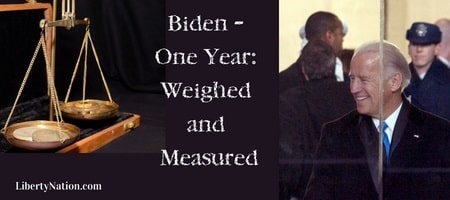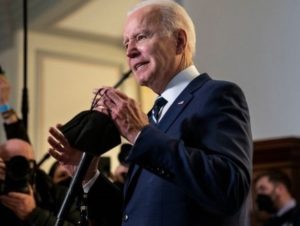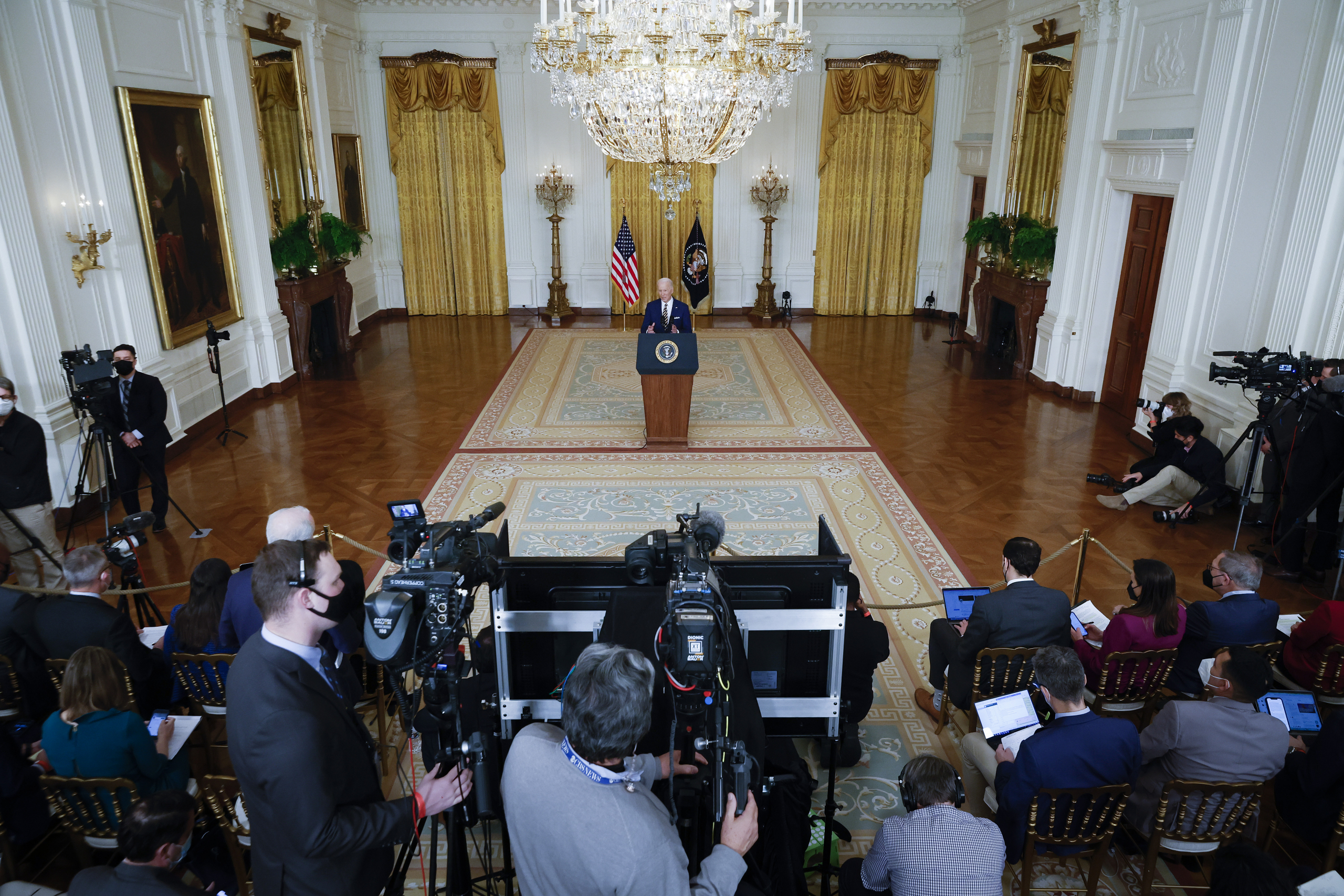It has been a year since the United States abandoned Trumponomics and installed Bidenomics. So far, the results have been as putrid as a single-use face mask routinely worn since the early days of the coronavirus pandemic. President Joe Biden’s agenda has birthed a broad array of unintended consequences, moral hazards, and unpaid bills. But the White House insists it is responsible for all the good stuff that has transpired and not culpable for the horror that has unfolded over the last 365 days. After one year of President Biden, are the American people singing “Happy Days Are Here Again” or bracing for the end of days with Giuseppe Verdi’s “Dies Irae” playing in the background? You may need to check your wallet first.
The Age-Old Question
 During every presidential election cycle, candidates present a question that has become a trope in U.S. politics: Are you better off now than you were four years ago? But the public does not need to turn the clock back to 2018. Instead, voters can be asked something slightly different in 2022: Are you better off now than you were a year ago?
During every presidential election cycle, candidates present a question that has become a trope in U.S. politics: Are you better off now than you were four years ago? But the public does not need to turn the clock back to 2018. Instead, voters can be asked something slightly different in 2022: Are you better off now than you were a year ago?
For much of 2021, the single most significant issue that has hurt the poor and middle-class and become the focal point for investors and policymakers was inflation. The latest Bureau of Labor Statistics (BLS) data show that the consumer price index (CPI) is the highest it has been since June 1982. Officials hope the growing cost of living has peaked. Still, the consensus among economists, market analysts, and consumers is that inflation will remain elevated for a while longer, even heading into the mid-term elections.
Americans are paying more for everything: food, gasoline, shelter, apparel, and a slew of other products. As the great Howard Beale says in the superb 1976 motion picture Network: “A buck buys a nickel’s worth.” But, in an economy where scarcity has metastasized into the new normal, consumers might be lucky that they are getting their hands on anything at all as bare shelves, particularly at supermarkets, are ubiquitous nationwide.
Yet according to Biden and all the president’s men and women, it is Big Meat’s fault rather than a concoction of market fundamentals, currency dilution (thanks Federal Reserve!), and global demand.
Before the coronavirus pandemic, the U.S. did the unthinkable by becoming energy independent, no longer relying on foreign oil to power the country. The sector was producing a record 13 million barrels per day of crude and became an important exporter in global energy markets, rivaling even Saudi Arabia and Russia. The U.S. had finally accomplished the objective of every administration since the 1970s.

Joe Biden (Kent Nishimura / Los Angeles Times via Getty Images)
Biden eviscerated this landmark achievement, keeping up with his 2020 campaign promise to end the fossil fuel industry. Today, the domestic energy sector’s crude output is a little more than 11 million barrels per day, and the White House has pleaded with foreign markets to produce black gold to bring down sky-high prices and ensure advanced countries keep their lights on.
So, when factoring in the costs that the Oval Office and Democrats needlessly added over the last 12 months, how much more are households paying for goods and services? Motorists fork over $3.31 for a gallon of gasoline, up from $2.38 the same time last year. A carton of a dozen eggs is $1.79, up about 8%. Shoppers are spending $3.74 for a gallon of milk, up 9.2%.
The American people should not worry, the administration says. Inflation is only high because the U.S. government is calculating things adding to inflation pressures. This is nothing more than a “tragedy of the treadmill.” Higher prices are “transitory,” and any skyrocketing price increases are the result of greed. Spending trillions of dollars will cost taxpayers $0. Of course, all these statements emanating from the mouths of President Biden, Press Secretary Jen Psaki, and Director of the National Economic Council Brian Deese have been balderdash.
What If?
Would the economy be different if Donald Trump had won a second term? Perhaps slightly. It is safe to say that the real estate billionaire mogul would have encouraged U.S. oil and gas firms to “drill, baby, drill,” and he probably wouldn’t have introduced trillions in new spending. This would have potentially lowered price inflation and supported Americans’ purchasing power. By spending trillions of dollars more that Uncle Sam does not possess, and implementing policies such as canceling the Keystone XL pipeline and signing deficit-financed spending bills, the first year of Bidenomics might turn out to be the least effective economic creed of any modern U.S. leader. Like politicians who have overstayed their welcome, this economic prescription is past its expiration date.
~ Read more from Andrew Moran.




